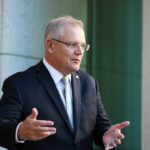For an industry that prides itself on bringing people together, it was a particular humiliation for airlines to have to resort to video conferencing for their annual industry meeting this week – and not one they are ready to repeat.
Brought to their knees by the COVID-19 pandemic and struggling to convince governments to replace quarantines with testing, airlines turned to veteran IAG boss Willie Walsh to lead industry association IATA from next April.
“My style will be different from what has gone before me,” said Walsh, known to British Airways unions as something of a bruiser, as he thanked outgoing IATA chief Alexandre de Juniac.
“I too am a businessman and I too understand how governments operate, but I’m even more unhappy and more critical of how they get things done (and) how they’ve failed to get things done,” said Walsh.
Without a doubt, this will be Walsh’s biggest challenge yet.
In three days of media briefings around the meeting, IATA further downgraded its financial outlook for the sector as a second wave of coronavirus cases in Europe and the US points to more heavy losses and bankruptcies.
That may test Walsh’s aversion to bailouts and subsidies. Little was said about further aid at the meeting, which ended on Wednesday, though de Juniac called days earlier for $80 billion in support on top of the $160 billion received.
Despite vaccines promising eventual relief, executives worry they might reduce the immediate pressure on policymakers to reopen travel safely.
In the short term, meanwhile, they are having to roll out apps designed to manage health certificates and the broader chaos.
Governments may also use air travel to encourage vaccine uptake – drawing airlines into a political minefield. Australia’s Qantas said it expected to require all passengers to show vaccination certificates.
“We know in some countries we have some difficulties to convince the population to be vaccinated,” de Juniac told Reuters before the meeting – warning that any general requirement could effectively bar people from travel.
For airlines that survive COVID-19, intense environmental pressures still lie in wait, as several executives observed; “flight-shaming” has not gone away.
In Europe, the industry is battling new green taxes and regulation while facing higher investment demands for cleaner aircraft and fuel technology development.
Bailouts and borrowing have swollen global airlines’ debt by more than half to $651 billion, IATA Chief Economist Brian Pearce said – a mountain that will undermine their ability to fund more efficient new aircraft, let alone green innovation.
Underlining the financial strain, Norwegian Air became the latest crisis casualty when it filed for Irish bankruptcy protection days before the meeting.
“Airlines are setting themselves up for horrendous balance sheet structures,” said James Halstead, managing partner at consulting firm Aviation Strategy, who believes airlines will continue to struggle to influence policy.
“The people in the driving seat are health authorities – it’s a massive health crisis, so they don’t want people moving around,” Haltead said. “The feeling is that aviation can be tackled later.”
Global Times



